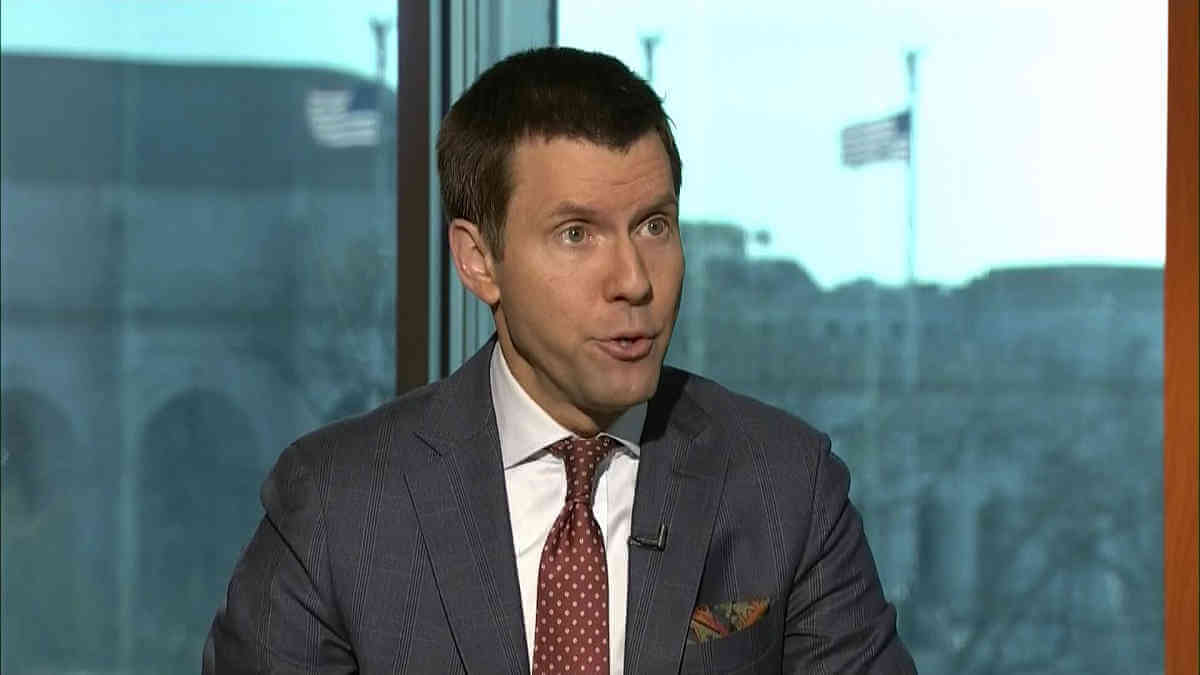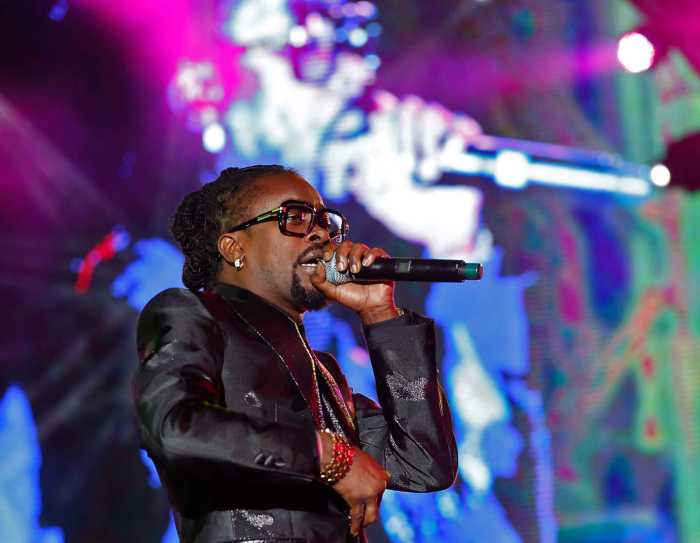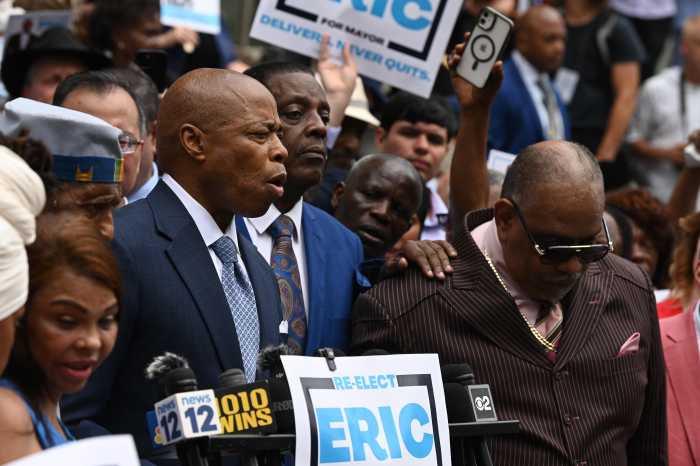While the conservative proponents of potential compromise legislation that would bar discrimination based on sexual orientation and gender identity will likely face resistance from the LGBTQ community, it is possible that the fiercest opposition to such legislation will be among conservatives.
“Some of these folks are really serious people within the religious hierarchy,” said Tim Schultz, president of the 1st Amendment Partnership, a group that advocates for religious freedom. “Some are going to oppose it because it’s a kind of prudential mistake. A smaller group will oppose this as a kind of heresy.”
For several years, some on the right have been saying that conservatives should agree to enact legislation that would extend anti-discrimination protections to include sexual orientation and gender identity as protected classes while offering exemptions for religious institutions and their affiliates and businesses that have religious objections to serving or employing LGBTQ people.
Under the rubric of Fairness for All, which remains undefined, a small number of religious conservatives have argued for this compromise position. There is currently no federal legislation that embodies this approach, though Buzzfeed News reported in May that such legislation was being written. With the exception of Utah in 2015, proponents have had no success in enacting state legislation that would grant at least some protections to LGBTQ people with exemptions for religious conservatives and institutions.
“We’re at the early stages of this, real early stages,” Schultz said. “Everybody views this as a multi-year process… We expect to have conservative critics and liberal critics.”
While the LGBTQ community has had recent successes with marriage, conversion therapy bans, and adding gender identity to existing state anti-discrimination laws, the community has not recently added new states, except for Utah, to the jurisdictions that bar discrimination based on sexual orientation and gender identity. The advocates for Fairness for All say their approach ends conflict and lawsuits and advances at least some of the interests of all parties.
“Those of us who have worked on the Fairness for All concept believe that the Church and religious institutions need to be protected in their convictions (i.e. Religious freedom), while simultaneously affirming civil rights for all persons regardless of their sexual orientation or patterns of life,” Dennis Hollinger, a professor of Christian ethics at the Gordon-Conwell Theological Seminary in Massachusetts, wrote in an email.
Since Utah, Shirley Hoogstra, president of the Council for Christian Colleges & Universities (CCCU), and Leith Anderson, president of the National Association of Evangelicals (NAE), have been meeting with peers in an effort to drum up support. The boards of both groups quietly passed motions backing Fairness for All last year.
While Fairness for All has been opposed by some conservatives from the start, that opposition exploded into public view in 2016 after the CCCU and NAE positions became more public. Seventy-five “prominent religious and thought leaders” issued a statement titled “Preserve Freedom, Reject Coercion” opposing all “SOGI laws,” measures that ban discrimination based on sexual orientation and gender identity.
Those laws “threaten basic freedoms of religion, conscience, speech, and association; violate privacy rights; and expose citizens to significant legal and financial liability for practicing their beliefs in the public square,” the signers wrote. “We therefore believe that proposed SOGI laws, including those narrowly crafted, threaten fundamental freedoms, and any ostensible protections for religious liberty appended to such laws are inherently inadequate and unstable.”
That opposition has continued into 2019, with right-wing political groups, such as the Heritage Foundation and the Family Research Council, taking up the cause. Public Discourse, an online journal produced by the right-wing Witherspoon Institute, has published at least two pieces opposing Fairness for All in 2019. That site is edited by Ryan Anderson, a senior staffer at the Heritage Foundation and a signer of the 2016 statement.
“It is definitely true that many of the signatories of that document are opposed to Fairness to All,” Shultz said. “A lot of the verbiage in that document is basically about the idea that sexual orientation laws are bad, they’re coercive. I would say that that is an accurate description of them… They can be used for coercive purposes.”
The LGBTQ community’s stance toward religious exemptions has generally not been favorable. Currently, the community is pressing the Equality Act. That federal legislation, which passed the House in May, adds sexual orientation and gender identity to the Civil Rights Act of 1964. That law has limited religious exemptions that have survived without complaints for more than five decades.
Prior to the 2015 introduction of the Equality Act in Congress, the community was pursuing the Employment Non-Discrimination Act, which barred employment discrimination based on sexual orientation and gender identity. First introduced in Congress in 1994, the final version of that legislation had a sweeping religious exemption that eventually led to a number of LGBTQ groups opposing it. Some of those same groups supported the Utah law, which added sexual orientation and gender identity to an existing state law that had broad religious exemptions. The so-called Utah compromise, added more exemptions in exchange for legal protections in housing and employment, both not public accommodations.
Some advocates, notably Chad Griffin, then the president of the Human Rights Campaign, the nation’s largest LGBTQ rights group, saw Utah as a national model, but quickly said it was unique to Utah when the provisions of the law became more widely known and controversial in the community.
With Fairness for All, the true opposition could be on the right.
“We have always known that there are some seriously influential people who doubt this,” Schultz said. “There will be more heretic hunting when this becomes more real.”



































